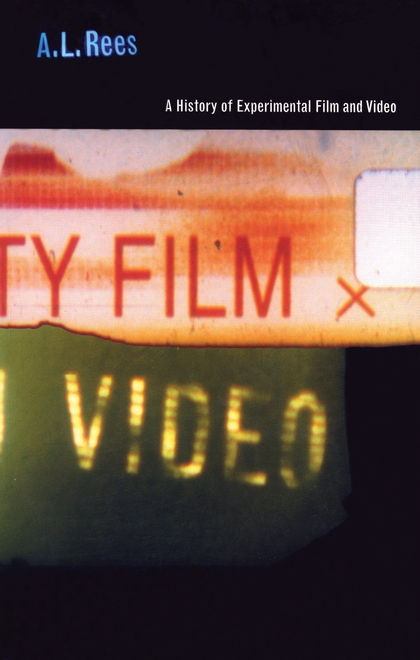A. L. Rees: A History of Experimental Film and Video: From Canonical Avant-garde to Contemporary British Practice (1999)
Filed under book | Tags: · avant-garde, cinema, experimental film, film, film criticism, film history, united kingdom, video art

“Avant-garde film is almost indefinable. It is in a constant state of change and redefinition. In this book A.L. Rees tracks the movement of the film avant-garde between, on the one hand, the cinema, and, on the other hand, modern art (with its post-modern coda). But he also reconstitutes the film avant-garde as an independent form of art practice with its own internal logic and aesthetic discourse.
This is the first major history of avant-garde film and video to be published in more than twenty years. Ranging from Cezanne and dada, via Cocteau, Brakhage and Le Grice, to the new wave of British video artists in the 90s, this remarkable study will introduce a generation of new readers to avant-garde film as well as provoking students and specialists to further reflection and debate.”
Publisher BFI Publishing, London, 1999
ISBN 0851706843, 9780851706849
viii+152+[32] pages
Interview with author: LUX (2011).
Reviews: Felicity Sparrow (Vertigo, 1999), Alexander Graf (MedienWissenschaft, 2000), Felicity J Colman (Viewfinder, c.2011).
PDF (4 MB, updated on 2021-2-8 via esco_bar)
Comments (2)Robert Axelrod: The Evolution of Cooperation (1984)
Filed under book | Tags: · collaboration, sociology

The Evolution of Cooperation provides valuable insights into the age-old question of whether unforced cooperation is ever possible. Widely praised and much-discussed, this classic book explores how cooperation can emerge in a world of self-seeking egoists-whether superpowers, businesses, or individuals-when there is no central authority to police their actions. The problem of cooperation is central to many different fields. Robert Axelrod recounts the famous computer tournaments in which the “cooperative” program Tit for Tat recorded its stunning victories, explains its application to a broad spectrum of subjects, and suggests how readers can both apply cooperative principles to their own lives and teach cooperative principles to others.
Publisher Basic Books, 1984
ISBN 0465021212
241 pages
PDF (updated on 2014-8-29)
Comment (0)Peter Gonda: Simulácia sociálnych noriem v multiagentovom prostredí (2009) [Slovak]
Filed under thesis | Tags: · cognitive science, collaboration, genetics
Sociálne kognitívne vedy sa zaoberajú ľudskou kogníciou ako procesom silne podmieneným spoločenským kontaktom. Pravidlá a zaužívané postupy sociálneho správania sú predpísané sociálnymi normami, nepísanou sadou pravidiel, ktorá sa vyjednáva v rozsiahlej sérii interakcií počas kontaktu medzi jednotlivcami v skupine. Práca stavia na doterajšom výskume sociálnych a kooperačných noriem, aby prezentovala vlastnú multiagentovú simuláciu vychádzajúcu z teórií geneticko-kultúrnej koevolúcie. Výsledky ukazujú, že v simulácii povstávajú stabilné vzorce hodnôt, ktoré predpisujú mieru altruizmu a sociálneho učenia u agentov.
Kľúčové slová
sociálne normy, evolúcia kooperácie, geneticko-kultúrna koevolúcia, sociálne učenie, simulácia
Diplomová práca
Univerzita Komenského v Bratislave, Fakulta matematiky, fyziky a informatiky, Katedra aplikovanej informatiky, Umelá inteligencia
Vedúci práce: prof. RNDr. Jiří Pospíchal, DrSc
Bratislava: FMFI UK, 2009
Social norms in gene-culture multi-agent environment
This thesis builds upon the research of social and cooperative norms, to present an original contribution in the form of a multi-agent simulation, which owes much to theories of gene-culture coevolution. The results presented show that stable patterns of values that describe the level of altruism and social learning amongst the agents emerge in the simulation.
More info (author)
PDF
PDF (presentation in English)

